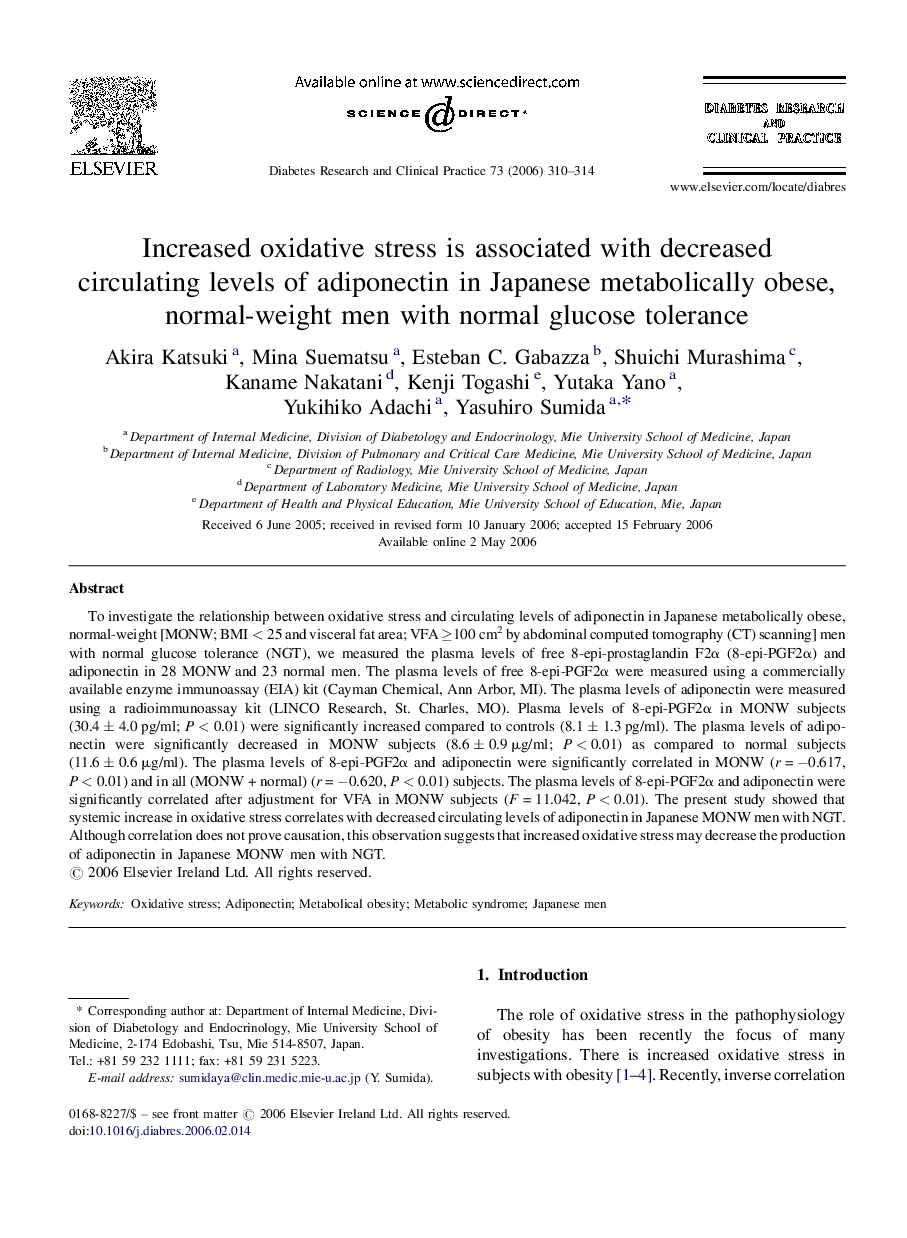| Article ID | Journal | Published Year | Pages | File Type |
|---|---|---|---|---|
| 2798857 | Diabetes Research and Clinical Practice | 2006 | 5 Pages |
Abstract
To investigate the relationship between oxidative stress and circulating levels of adiponectin in Japanese metabolically obese, normal-weight [MONW; BMI < 25 and visceral fat area; VFA â¥100 cm2 by abdominal computed tomography (CT) scanning] men with normal glucose tolerance (NGT), we measured the plasma levels of free 8-epi-prostaglandin F2α (8-epi-PGF2α) and adiponectin in 28 MONW and 23 normal men. The plasma levels of free 8-epi-PGF2α were measured using a commercially available enzyme immunoassay (EIA) kit (Cayman Chemical, Ann Arbor, MI). The plasma levels of adiponectin were measured using a radioimmunoassay kit (LINCO Research, St. Charles, MO). Plasma levels of 8-epi-PGF2α in MONW subjects (30.4 ± 4.0 pg/ml; P < 0.01) were significantly increased compared to controls (8.1 ± 1.3 pg/ml). The plasma levels of adiponectin were significantly decreased in MONW subjects (8.6 ± 0.9 μg/ml; P < 0.01) as compared to normal subjects (11.6 ± 0.6 μg/ml). The plasma levels of 8-epi-PGF2α and adiponectin were significantly correlated in MONW (r = â0.617, P < 0.01) and in all (MONW + normal) (r = â0.620, P < 0.01) subjects. The plasma levels of 8-epi-PGF2α and adiponectin were significantly correlated after adjustment for VFA in MONW subjects (F = 11.042, P < 0.01). The present study showed that systemic increase in oxidative stress correlates with decreased circulating levels of adiponectin in Japanese MONW men with NGT. Although correlation does not prove causation, this observation suggests that increased oxidative stress may decrease the production of adiponectin in Japanese MONW men with NGT.
Related Topics
Life Sciences
Biochemistry, Genetics and Molecular Biology
Endocrinology
Authors
Akira Katsuki, Mina Suematsu, Esteban C. Gabazza, Shuichi Murashima, Kaname Nakatani, Kenji Togashi, Yutaka Yano, Yukihiko Adachi, Yasuhiro Sumida,
